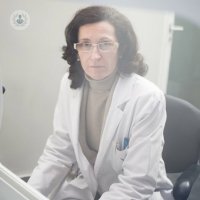5 questions about tendinopathies
Written by:When we talk about tendinopathy we refer to an alteration of a tendon. Tendons are a tissue made up of collagen type 1 and elastin, in addition to proteoglycans and glycoproteins, which bind muscles to bone.
Causes of tendinopathy
 The causes of tendinopathy are varied; In athletes are produced by improper training, either by overexertion, increased loads, defective techniques, joint instability, incorrect footwear, defective playgrounds, and so on.
The causes of tendinopathy are varied; In athletes are produced by improper training, either by overexertion, increased loads, defective techniques, joint instability, incorrect footwear, defective playgrounds, and so on.
In non-athletes, age is a risk factor because tendons undergo structural changes that favor their deterioration. Inactivity, metabolic alterations such as hypothyroidism, obesity, hypercholesterolemia, diabetes, hyperuricemia, malnutrition after fasting and uncontrolled diets, genetic factors and some medications are cause of tendinopathy.
What symptoms do tendinopathies develop?
The fundamental symptom is pain; At first there is only pain with movement when the tendon is subjected to a habitual biomechanics with which it did not previously hurt. Later the pain may appear even at rest.
What are the most frequent tendinopathies?
Achilles tendinopathy, rotator cuff and supraspinatus syndrome, epicondylitis and epitrochleitis, tendonopathy of the patellar tendon or jumper's knee, and plantar fasciitis.
Treatment of tendinopathies
It is important to go to the specialist in Sports Medicine when the first symptoms appear, since with high frequency tendinopathies are chronicled, which greatly increases recovery and healing time.
Treatment in the acute phase consists of reducing tendon loading and providing anti-inflammatory drugs. In the late phase where degenerative tendinopathy is already present, in addition to reducing the load, physiotherapeutic treatment with eccentric exercises, ultrasound, laser, ice, etc., and the contribution of growth factors (PRGF) is very useful.



